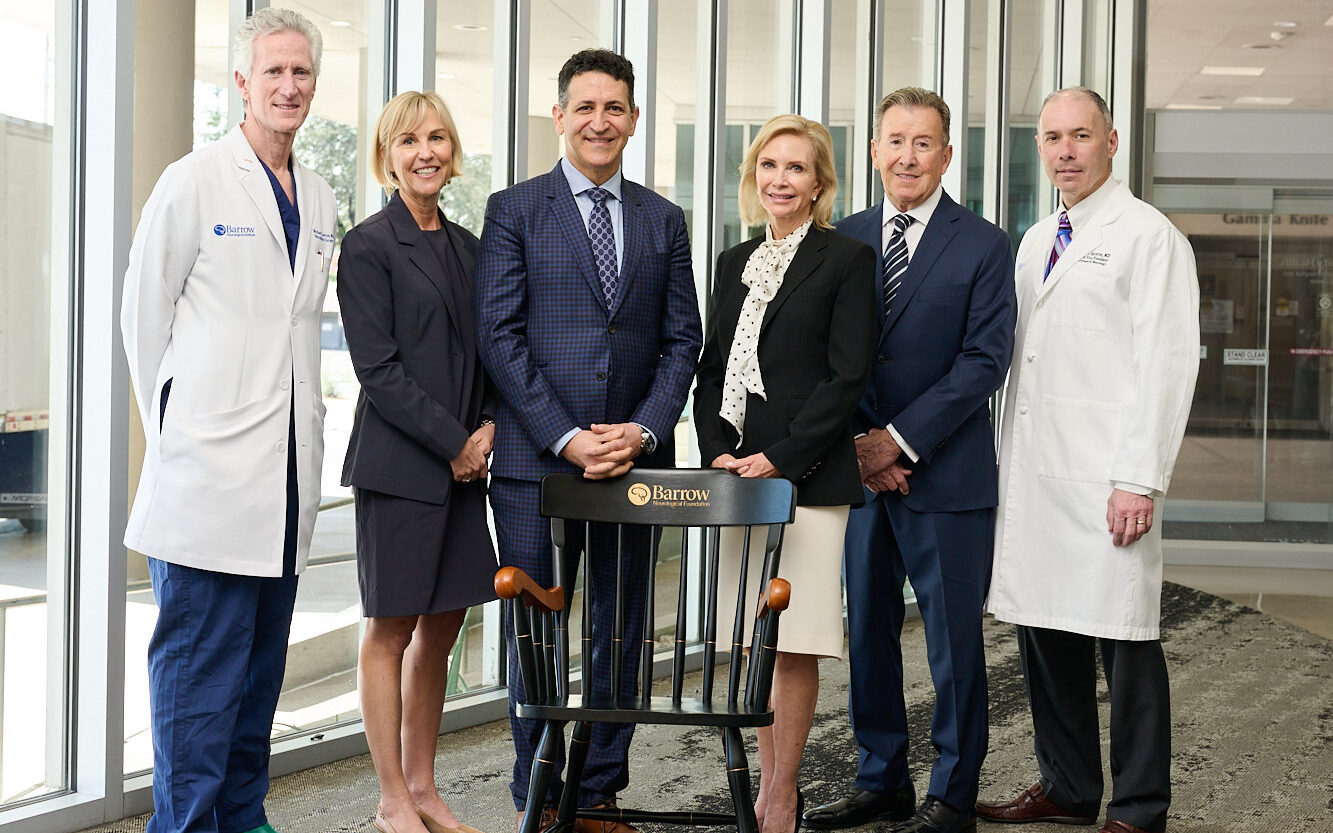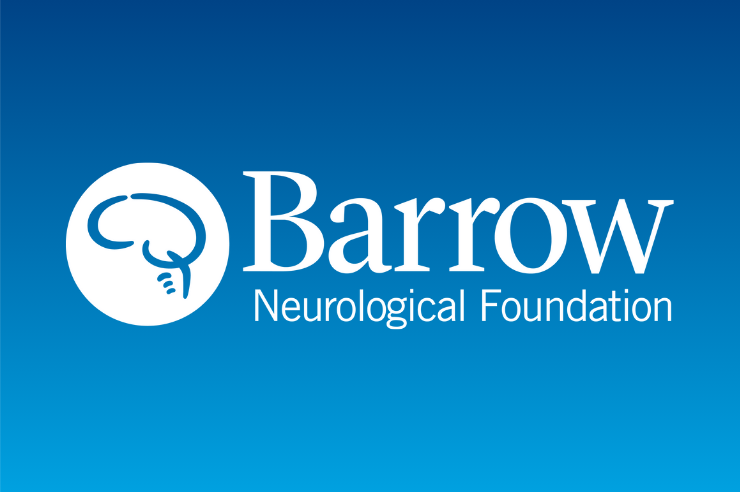A gift from Carole and Arte Moreno establishes the endowed position.

Barrow Neurological Foundation is proud to announce that Carole and Arte Moreno have established the Moreno Family Chair for Alzheimer’s Research in the Alzheimer’s and Memory Disorders Program at Barrow Neurological Institute. Mrs. Moreno is a longtime member of the Women’s Board of Barrow Neurological Foundation, and the generous gift was made through the Barrow Grand Ball, the annual gala of the Women’s Board.
Marwan Sabbagh, MD, FAAN, is a top neurologist in the Barrow Alzheimer’s and Memory Disorders program, director of the Applied Alzheimer’s Research Laboratory, Vice Chair of Research in the Department of Neurology, and the newly appointed Moreno Family Chair for Alzheimer’s Research. Dr. Sabbagh is the author of six books and more than 400 research publications. He also is a principal investigator on more than 100 clinical trials. Dr. Sabbagh was presented with the chair on March 8, 2024, during a ceremony held at Barrow Neurological Institute with the Morenos, members of the Barrow Women’s Board, members of the Foundation’s Board of Trustees, and his colleagues in attendance.
“My husband, Arte, and I personally know how devastating Alzheimer’s disease can be for both patients and their loved ones. We share the same sense of urgency for transforming Alzheimer’s disease research as Dr. Marwan Sabbagh. We hope that with our support through the Moreno Family Chair for Alzheimer’s Research, Dr. Sabbagh will be able to accelerate his vision of preventing this terrible disease before it starts.”
Mrs. Moreno
Currently, more than 6 million Americans are living with Alzheimer’s disease, with that number expected to rise to 12.7 million by 2050. As the most feared disease in the United States, Alzheimer’s takes more lives than breast cancer and prostate cancer combined. While medications can temporarily help with symptoms, Alzheimer’s still cannot be effectively treated or cured.
“Research has the power to transform the Alzheimer’s disease journey as we know it. As the Moreno Family Chair for Alzheimer’s Research, I have the resources to move full-force forward in conducting research focused on changing the course of Alzheimer’s from a fatal disease to one that can be identified early, treated, and even prevented. I could not be more grateful to Carole and Arte, and their entire family, for their generosity,”
Dr. Sabbagh
Dr. Sabbagh’s research trajectory is focused on reaching three key milestones. First, he aims to transform Alzheimer’s from a terminal disease to a chronic one, as has been done in the past for diseases such as diabetes. Then, he aims to identify those most at risk for developing Alzheimer’s. Dr. Sabbagh already has begun groundbreaking research utilizing blood, saliva, and cerebral spinal fluid to identify the likelihood of someone developing Alzheimer’s and to predict the course of disease progression. Finally, with the tools to predict one’s likelihood of developing Alzheimer’s, he will work to create treatments to prevent those at risk from developing the disease.
“I could not be more grateful to the Morenos for their generosity in establishing the Moreno Family Chair for Alzheimer’s Research, which will provide Dr. Sabbagh with the resources to advance his cutting-edge research at this most critical time. With this funding, we are one step closer to transforming the entire course of Alzheimer’s disease, changing countless lives for years to come.”.
Katie Cobb, President, Barrow Neurological Foundation
The Alzheimer’s and Memory Disorders Program at Barrow Neurological Institute provides world-class, comprehensive care to patients and vital support services to their loved ones. Simultaneously, Barrow memory disorders specialists conduct innovative research to find better ways to diagnose Alzheimer’s, understand exactly how the disease works, design new clinical trials, and develop new treatments and therapies.

